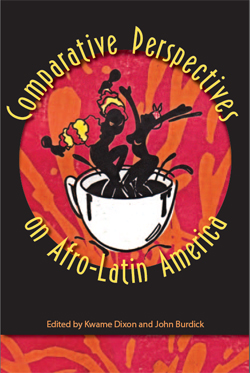Syracuse Views Summer 2025
We want to know how you experience Syracuse University. Take a photo and share it with us. We select photos from a variety of sources. Submit photos of your University experience by sending them directly to Syracuse University News at…

 “As academic interest in Afro-Latin America increases, so does the need for a fresh text detailing issues facing black populations throughout the region,” says Dixon, assistant professor of African American studies in SU’s
“As academic interest in Afro-Latin America increases, so does the need for a fresh text detailing issues facing black populations throughout the region,” says Dixon, assistant professor of African American studies in SU’s